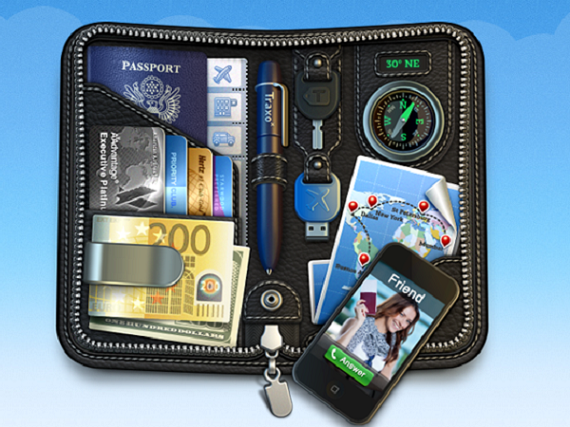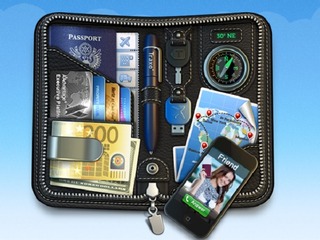
For people who travel often, I can only image how confusing it must be with all of the different rewards programs, miles and rewards. I only had miles with Delta, American Airlines and Virgin, and I got so confused with when I was supposed to use them that at least two of them expired. Not that I ever want to fly Delta again, but still. Nobody told me that I had to use them or else, so I lost them.
Personal travel organizer Traxo wants to take all of this information and make it easy to find. And now the company has raised $4.2 million in a Series A round of funding, it was announced on Wednesday.
The funding came from Advantage Capital Partners, Silver Creek Ventures, and Thayer Ventures. The company previously raised a $1.2 million seed round bringing its total funding to $5.4 million. Traxo was the Vator Splash NY 2012 winner.
Traxo will use the new money to ramp up its product development and to expand internationally, Andres Fabris, co-founder and CEO of Traxo, told me in an interview.
For the product development end, that specifically means giving users more intelligent travel tools, including more destination content, like attractions and deals in the area, he said. As for the international expansion, the money will go toward making the product available in new languages.
While Traxo currently has 20% of its users in 50 countries around the world, most of them are countries that are “comfortable with English,” said Fabris. That is not going to be the case everywhere Traxo lands, of course, so the company will begin translating the user interface into languages other than English.
Launched in 2009, Traxo automatically detects and aggregates travel information, including itineraries, miles, points, and elite status, directly from over 200 different travel websites. It accepts travel confirmation emails, organizing everything into a single, comprehensive travel dashboard. Users are able to track miles, points, status, expiration dates, usernames and passwords.
Fabris called the service a “Mint.com for travel.”
The idea came when Fabris, and co-founder Andy Chen “started to notice that there were less and less traditional agents, and that people were booking their own trips online. All of a sudden, travelers had a lot of choices, but they were scattered across different sites, where they had to manually insert details, like their flight, car rental, hotel, weather, flight departures, trip by trip with every booking,” he said.
“We wanted to build technology that could automatically detect components of the trip, and centralize it to single dashboard. It allows users to manage their entire travel life in one place.”
Traxo is not an entirely unique service; there are other sites out there, like TripIt, WorldMake, and TripCase, which also aggregate trip data. So what separates Traxo from the competition?
For one, Fabris pointed to the sophistication of their technology.
“We have invested in a platform that can automatically detect, organize and consolidate information,” he said. Other sites rely on the users themselves pushing the information.
“Automatic updates make sure that the data is always fresh.”
In addition, the site is free, which other sites are not. And, lastly, Traxo has made the site and product “fun and engaging by adding a social and gamification layer.”
That means that the company has created something called a “travel score,” which means that users can get points for their trips, including more points for visiting unique place, taking longer trips, for using their miles, etc. They can then use these points for perks and benefits, including free airfare, free car rental vouchers, and magazine subscriptions to Conde Naste.
Users can even get points for trips they took before they signed up for Traxo, as long as the information is still on the travel site used to book that experience. So far past reservations can be pulled from 50 different travel sites.
Giving users travel achievements and trophies, and allowing them to see how their travel compares to others, makes users more engaged, said Fabris.
“There is an inherent desire to collect and track travel experience. There is a built in desire to compare and share with others as well.”
Ultimately the goal of Traxo is to make travel more personalized.
By being able to automatically detect travel preferences, it can know where user stay, where they have memberships, where they have friends, and use that information to make traveling, and booking, easier and cheaper.
For example, it can use that info to let the user know if the hotel or airline is running a promotion, effectively notifying them of promotion they may not have realized they missed.
“It’s like clipping a coupon for purchase you already made,” said Fabris. “If we can help a traveler earn 20,000 extra points, that could be a $400 value.”
While Fabris could not give me a definitive number of users, he said that the Dallas-based company is “growing very quickly.”
“The folks that have invested in this round see that Traxo has a tremendous amount of momentum going forward.”
(Image source: https://www.traxo.com)

















